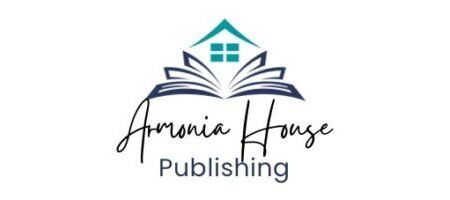When you face significant changes in your life, finding peace and clarity can be tough. Journaling is a powerful tool to help you through these times. By writing down your thoughts and feelings, you can understand yourself better and find your purpose.
Spiritual journaling prompts can lead you to self-discovery and healing. This practice helps you reflect on your experiences, celebrate your wins, and learn from your setbacks. As you make journaling a daily habit, you’ll face life’s transitions with more grace and confidence.
Key Takeaways
- Discover the benefits of journaling for spiritual growth during life transitions.
- Learn how to use journaling prompts for self-reflection and healing.
- Develop a daily journaling practice to enhance inner peace and clarity.
- Explore how journaling can support personal growth and transformation.
- Find guidance on incorporating journaling into your daily routine.
The Sacred Connection Between Journaling and Spiritual Awakening
Starting your journaling journey can reveal a deep bond between writing and spiritual awakening. Journaling is a strong tool for spiritual growth. It lets you explore your inner world and understand yourself better.
How Writing Unlocks Your Inner Wisdom
Writing in a journal connects you to your inner wisdom. It’s a space to reflect on your thoughts, feelings, and experiences. This reflection can help you spot patterns, gain insights, and understand your life’s purpose.
By writing down your thoughts, you can clarify your values and intentions. This leads to a more authentic and fulfilling life.

The Transformative Power of Putting Thoughts on Paper
Writing down your thoughts and feelings can change you. It helps you process your experiences and emotions in a meaningful way. This can lead to greater self-awareness, emotional healing, and spiritual growth.
Reflecting on your journal entries can reveal new perspectives and insights. These can guide you on your spiritual journey.
Why Journaling Resonates with Women in Midlife
For women in midlife, journaling is especially meaningful. It offers a safe space to navigate life’s challenges and opportunities. Whether you’re facing big changes or wanting to deepen your spiritual practice, journaling can help with personal transformation and growth.
Creating Your Sacred Journaling Space at Home
Starting your journaling journey can be powerful. Creating a special space at home can help you grow spiritually. This area will be your place for deep reflection and exploring your thoughts.
Selecting the Perfect Location for Reflection
Find a quiet, comfy spot for journaling. Think about the natural light, as it affects your mood. A cozy corner with a window or a peaceful outdoor spot works well.
Essential Tools for Your Spiritual Writing Practice
Get the right tools for your journaling space. A comfy journal, your favorite pen, and a calming candle are key. Adding inspiring quotes or images can spark your creativity.
| Tool | Purpose |
|---|---|
| Comfortable Journal | For writing and reflection |
| Favorite Pen | For smooth writing |
| Soothing Candle | For ambiance and relaxation |
Infusing Your Space with Personal Meaning
Make your space special with meaningful items. Add family photos, spiritual symbols, or nature elements. These touches help you connect with yourself and deepen your spirituality.

Creating a sacred journaling space encourages regular practice. It nurtures your spiritual growth and self-awareness.
Establishing a Daily Journaling Ritual for Inner Peace
Starting a daily journaling ritual can change a woman’s life. It’s a private space to deal with emotions and find peace. This practice helps you understand yourself better.
Morning Pages: Beginning Your Day with Intention
Begin your day with morning pages. Write down your thoughts and goals without worrying about what others think. It clears your mind and helps you focus.
Midday Check-ins: Reconnecting with Your Center
Take a break at midday to reconnect with yourself. Think about your day, feelings, and challenges. This helps you stay on track and reach your goals.
Evening Reflection: Harvesting Wisdom from Your Day
Reflect on your day in the evening. Acknowledge what you’ve done well and what you’ve learned. This practice builds gratitude and helps you grow.
Creating a Sustainable Routine That Sticks
To keep a journaling habit, be consistent and patient. Here are some tips:
- Choose a specific time and place for journaling
- Start with a manageable commitment, such as 10-15 minutes daily
- Be flexible and adapt your routine as needed
Remember, journaling is a journey, not a goal. It helps you face life’s challenges with clarity and peace.
| Journaling Time | Purpose | Benefits |
|---|---|---|
| Morning | Setting intentions | Clarity, focus |
| Midday | Reconnection | Grounding, adjustment |
| Evening | Reflection | Gratitude, insights |
“The goal is to be yourself, to be the person you were meant to be, and to let your true self shine through your journaling practice.”
Spiritual Awakening, Journaling, and Women in Life Transitions
Women often find themselves on a spiritual awakening journey during life transitions. Journaling is a powerful tool for self-discovery. Life brings many changes, some welcome, others challenging. For women in midlife, these changes can lead to a deeper exploration of their spirituality.
Navigating the Unique Challenges of Ages 40-50
Women between 40 and 50 face many life changes. This can include children leaving home or career shifts. Journaling offers a space to reflect on emotions, fears, and dreams.
Using Your Journal to Process Major Life Changes
Journaling is a safe space to explore life’s complexities. It helps women clarify their thoughts and feelings. This practice aids in identifying patterns, releasing emotional baggage, and embracing new opportunities.
Finding Meaning in Your Second Act
The idea of a “second act” can be both exciting and daunting. Journaling helps women discover new passions and redefine their purpose. It’s a journey of self-discovery that fosters personal growth and renewal.
Journaling Through Empty Nest Transitions
The empty nest syndrome can leave women feeling lost. Journaling is a therapeutic outlet for expressing emotions. It helps women rediscover their identities and interests.
Writing Through Career Shifts and Reinvention
Career changes or reinvention are common in midlife. Journaling helps women explore their strengths and passions. It’s a tool for clarifying goals and creating a roadmap for professional fulfillment.
| Life Transition | Journaling Benefits | Practical Tips |
|---|---|---|
| Empty Nest | Emotional release, rediscovery of identity | Write about your feelings, explore new hobbies |
| Career Shift | Clarity on strengths and passions, goal setting | List your skills, brainstorm career options, set achievable milestones |
| Personal Reinvention | Self-discovery, aligning with spiritual values | Reflect on your values, explore new interests, practice gratitude |
By embracing journaling as a spiritual practice, women can navigate life transitions with greater ease. They find meaning in their experiences and emerge stronger and more resilient.
Connecting with Your Higher Self Through Reflective Writing
Reflective writing can take you to deeper states of consciousness. It helps in spiritual growth. Journaling connects you to your inner self, unlocking your inner wisdom and intuition.
Techniques for Accessing Your Inner Guidance
Using guided journal exercises for clarity is a great way to connect with your higher self. These exercises quiet your mind and tune into your inner voice. Spend a few minutes each day writing down your thoughts, feelings, and insights.
As you write, focus on the present moment. Let go of distractions. Journaling experts say listening to your inner voice is key. It helps you develop self-awareness and inner guidance.
Dialoguing with Your Spiritual Wisdom
Writing a dialogue with your higher self is another powerful technique. Ask yourself questions like “What is my current life path teaching me?” or “What wisdom am I overlooking?” Write down your answers without judgment.
This practice taps into your spiritual wisdom. It gives you clarity on your life’s journey.
Recognizing Divine Messages in Your Writing
As you journal, look for recurring themes, symbols, or messages. These could be divine messages guiding you. Reflect on these insights and apply them to your daily life.
Distinguishing Between Ego and Higher Self on the Page
It’s crucial to know the difference between your ego and higher self in your journal. Your ego might be critical or fearful. Your higher self offers wisdom, compassion, and guidance. Pay attention to the tone and content of your writing to recognize which voice is speaking.
By adding these practices to your journaling, you deepen your connection with your higher self. This leads to a more profound spiritual awareness.
Transformative Journaling Prompts for Self-Discovery and Growth
Journaling prompts can lead to deep self-awareness and personal growth. By using specific prompts, you can explore your inner self and grow. This practice helps you understand yourself better.
Questions to Reveal Your Authentic Self
Journaling can help you find your true self. It lets you see your values, desires, and dreams. Here are some questions to help you:
- What are your core values, and are they reflected in your current life choices?
- What are your deepest fears, and how do they impact your decisions?
- What brings you joy, and how can you incorporate more of it into your life?
- What are your long-term goals, and what steps can you take to achieve them?
- How do you define success, and are you measuring it correctly?
Life Purpose Discovery Exercises
Finding your life purpose can change everything. Try these exercises to find your true calling:
- Write about a time when you felt completely fulfilled. What were you doing?
- Identify your strengths and talents. How can you use them to make a positive impact?
- Imagine your ideal day. What activities would you be engaged in?
Reflecting on these questions can help you understand your life purpose. It helps you align your actions with your true calling.
Prompts for Navigating Uncertainty with Grace
Life is full of unknowns, but journaling can guide you through them. Use these prompts to reflect on your experiences:
- What is the current uncertainty you’re facing, and how are you responding to it?
- What are the lessons you can learn from this challenging situation?
- How can you practice self-compassion during this time?
Values Clarification Writing Exercises
Knowing your core values is key to making choices that reflect who you are. Try these exercises:
| Value | Current Alignment | Desired Alignment |
|---|---|---|
| Integrity | 6/10 | 9/10 |
| Compassion | 8/10 | 9/10 |
| Courage | 5/10 | 8/10 |
Future Self Visioning Techniques
Seeing your future self can inspire you to set goals and guide your actions. Try this exercise:
Imagine yourself five years from now. What does your ideal life look like? What steps can you take today to move closer to that vision?
Healing the Soul Through Journal Therapy for Women
Women going through life changes find journal therapy very helpful. It’s a way to heal emotionally and renew their souls. This method lets women explore their feelings and experiences, helping them understand themselves better.
Writing for Emotional Release and Renewal
Journaling can be very freeing. It helps women deal with tough emotions and release them. By writing down their feelings, they can clear their minds and find peace.
Processing Grief, Loss, and Life Disappointments
Life is full of ups and downs, and women often face unique challenges. Journaling is a safe place to face these hard feelings. It helps them heal and move forward with hope.
| Journaling Practice | Benefit |
|---|---|
| Writing for Emotional Release | Reduces stress and anxiety |
| Processing Grief and Loss | Fosters emotional healing |
| Self-Compassion Journaling | Promotes self-acceptance and kindness |
Self-Compassion Journaling Practices
Self-compassion journaling practices help women be kinder to themselves. By writing with kindness, they build a better relationship with themselves. This is especially helpful when they doubt themselves.
Forgiveness Letters You Never Send
Writing forgiveness letters to those who hurt you is a powerful practice. Even though you don’t send them, it helps you release your emotions. This can be a big step towards healing and moving on.
Mindful Writing Practices for Personal Transformation
Mindful writing is a special way to connect with yourself and grow. It helps you become more aware and clear. By making it part of your daily life, you can see big changes.
Present-Moment Awareness Journaling Techniques
One great way to practice mindful writing is through present-moment awareness journaling. It means focusing on now, ignoring distractions, and noticing your thoughts and feelings. Start by finding a quiet spot and a journal. Take deep breaths, then write whatever you think without worrying about it.
Gratitude Writing as a Daily Practice
Gratitude journaling is another powerful way to use mindful writing. It helps you focus on the good things in your life. Spend a few minutes each day writing about what you’re thankful for. Keep your gratitude journal next to your bed and reflect on the good things each morning or night.
Body-Centered Awareness Through Writing
Body-centered awareness is about listening to your body and how it connects to your feelings and spirit. It’s especially helpful during midlife, helping you deal with physical changes better.
Journaling Through Physical Changes of Midlife
Journaling can help you understand and deal with midlife physical changes. By writing about your body’s sensations, you can learn more about how these changes affect you. This can help you be kinder to your body.
To get the most out of these practices, set up a daily routine that feels right to you. Pick a time when you’re most reflective and make the space calm. By doing this, you can use mindful writing to grow and improve your life.
Advanced Spiritual Journaling Techniques for Clarity
Advanced spiritual journaling techniques help you connect with your inner wisdom. They offer clarity when you’re unsure. These methods can deepen your self-understanding and your view of the world.
Dream Journaling for Unconscious Wisdom
Dream journaling taps into your unconscious mind. Write down your dreams as soon as you wake up. This can reveal hidden fears, desires, and motivations.
Intuitive and Automatic Writing Methods
Intuitive writing lets your thoughts flow freely. It helps you connect with your inner guidance and creativity. Automatic writing goes further, letting your hand move freely. This deepens your connection to your subconscious.
Shadow Work: Embracing Your Whole Self
Shadow work explores the parts of you you’ve hidden. It’s about confronting and integrating these aspects. This journey can be tough but leads to greater self-awareness and wholeness.
Identifying and Transforming Limiting Beliefs
Shadow work helps you find and challenge limiting beliefs. By doing so, you can turn them into positive affirmations. This supports your growth and well-being.
Healing Your Inner Critic Through Writing
Your inner critic can block self-acceptance and growth. Journaling can help you understand and reframe its negative messages. This leads to a more supportive inner dialogue.
Using these advanced techniques in your journaling can lead to significant growth and clarity on your spiritual path.
Embracing Your Spiritual Journey: From Journal to Transformed Life
Journaling is a key part of your spiritual journey. It helps you grow emotionally and spiritually. It’s a gift you give yourself.
Journaling helps you understand yourself better. It lets you deal with life’s ups and downs. You can celebrate your wins and find your way through changes.
It’s more than just writing down thoughts. It’s talking to yourself. You discover your true self and live more on purpose. Your actions and choices become more meaningful.
Remember, your journal is special. Keep writing and growing. It will change your life, making you more spiritual and transformed.






